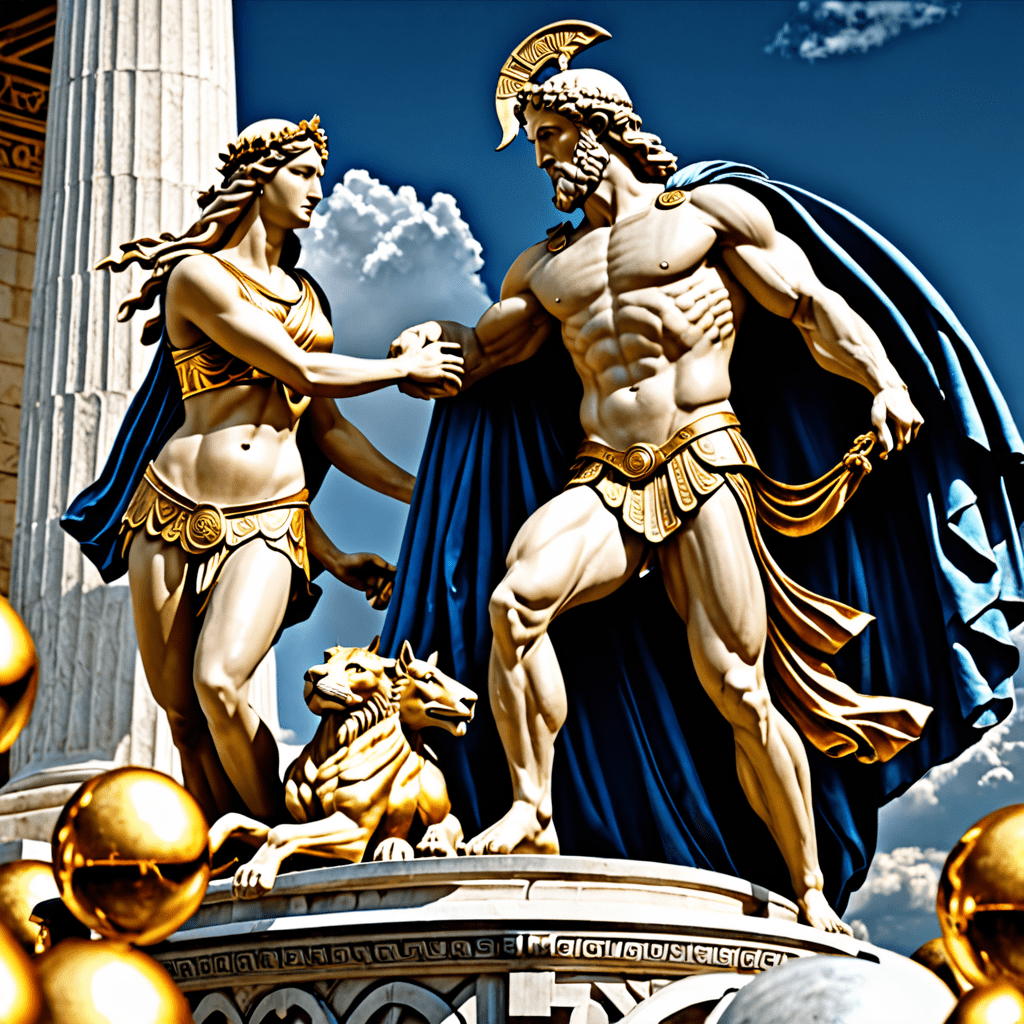Greek Mythology and the Concept of Luck: Exploring the Role of Fate and Fortune
In Greek mythology, the concept of luck or fortune was intricately intertwined with the notions of fate and divine intervention. Understanding how luck functioned in the lives of both mortals and gods sheds light on the beliefs and values of ancient Greek civilization.
The Role of Gods and Goddesses in Shaping Luck
In Greek mythology, luck was often seen as the result of the favor or disfavor of the gods and goddesses. Deities such as Tyche, the goddess of fortune, played a crucial role in determining the destiny of individuals. The Greeks believed that invoking the favor of specific deities could bring about good fortune, while displeasing them could lead to misfortune.
The Concept of Moira: Fate and Destiny
Central to Greek mythology was the concept of Moira, which encompassed the ideas of fate, destiny, and preordained outcomes. The belief in Moira suggested that certain events in an individual’s life were predetermined and unavoidable, regardless of their actions or intentions. This notion of fate intertwined with luck, shaping the experiences of both mortals and immortals.
Heroes and Their Quest for Favorable Fortune
Many Greek myths revolve around heroes undertaking perilous journeys and quests in search of favorable fortune or to appease the gods. These tales often highlighted the role of luck in shaping the ultimate outcomes of their endeavors. Heroes like Odysseus and Hercules navigated through challenges where luck and divine intervention played pivotal roles in their adventures.
The Dichotomy of Luck: Beneficial vs. Malevolent
While luck was often perceived as a positive force that could bring prosperity and success, Greek mythology also depicted instances where luck took a darker turn. Stories of tragic figures like Oedipus illustrated how luck could lead to downfall and suffering when the gods’ favor shifted away. This duality of luck served as a cautionary tale about the unpredictable nature of fortune.
Exploring the intricate relationship between luck, fate, and the divine in Greek mythology offers fascinating insights into the ancient Greeks’ worldview and their understanding of the forces that govern human existence.
Frequently Asked Questions about Greek Mythology and the Concept of Luck
What role did luck play in Greek mythology?
Luck, or “tyche” in Greek, was a significant concept in Greek mythology. It often influenced the outcomes of events, battles, and the lives of mortals and gods. Luck was believed to be controlled by the gods, with figures like Tyche representing fortune and fate.
Which Greek gods were associated with luck?
Several Greek gods embodied luck in various forms. Tyche, the goddess of fortune, governed luck and prosperity. Her Roman equivalent was Fortuna. Additionally, Zeus, the king of gods, had authority over destiny and luck through the Moirai (the Fates) who determined the lifespan of mortals.
How did the Greeks view luck compared to fate?
In Greek mythology, luck was seen as more unpredictable and changeable compared to fate, which was considered a predetermined course that even the gods could not alter. While fate was often viewed as inevitable, luck could bring unexpected turns of events, both positive and negative.
Can individuals change their luck in Greek mythology?
Greek mythology suggests that while luck was largely controlled by the gods, individuals could potentially influence their luck through actions, offerings to the gods, or seeking the favor of deities associated with luck. However, luck was ultimately seen as a force beyond full human



